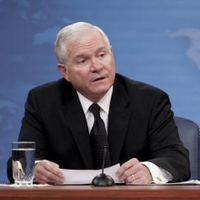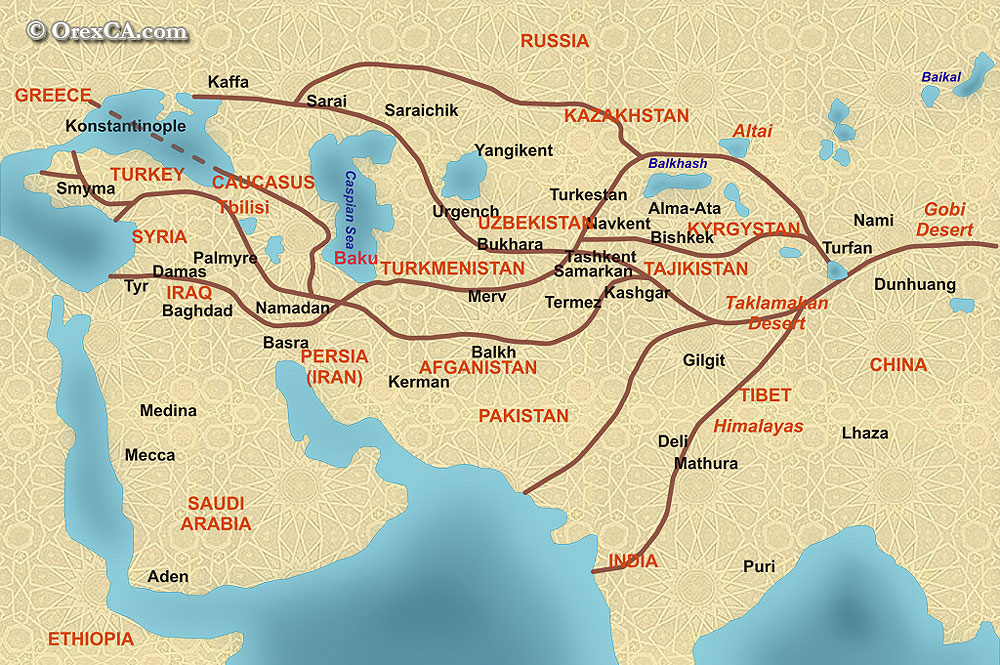
by Thomas P.M. Barnett
"The Esquire 100," Esquire, October 2006, p. 177.
Bush should have co-opted Ahmadinejad, not cornered him. His proxy war with Israel only strengthens him. Meanwhile, "moderate" Arab dictators like Mubarek see their lives flashing before them.
Let me give you the four scariest words I can't pronounce in Arabic: Egypt after Hosni Mubarak.
Osama picked the time (9/11), and Bush picked the venue (Iraq), but this fight between radical Islam and globalization's integrating forces was preordained the day Deng Xiaoping set in motion China's economic rise almost three decades ago. You can't rapidly add billions of new capitalists to the global economy and pretend the Islamic Middle East will remain queerly disconnected forever, somehow fire-walled from that borglike assimilation.
And so, while resistance may be ultimately futile, it will be bloody as hell in the meantime, with Cairo--not Tehran--likely to become the next big flash point in this Long War.
Mubarak's "emergency rule" dictatorship is deep into its third decade, making him one of Egypt's most durable pharaohs. His succession plan is clear: Son Gamal tries to replicate Beijing's model of economic reform, forestalling political reform.
In other words, connect to the global economy to avoid connecting to your own people: bread before circuses, my friends.
 The problem? Another political force is connecting to the restive Egyptian people, and it's the Muslim Brotherhood, otherwise known as Al Qaeda 1.0. By hardwiring themselves into the goodwill of the masses through highly effective social-welfare nets, the Brotherhood is retracing the electoral pathway to power blazed by Hamas in Palestine and Hezbollah in Lebanon: hearts and minds first, blood and guts later.
The problem? Another political force is connecting to the restive Egyptian people, and it's the Muslim Brotherhood, otherwise known as Al Qaeda 1.0. By hardwiring themselves into the goodwill of the masses through highly effective social-welfare nets, the Brotherhood is retracing the electoral pathway to power blazed by Hamas in Palestine and Hezbollah in Lebanon: hearts and minds first, blood and guts later.
So it's basically a race: Gamal's quest for foreign direct investment and the jobs it generates versus the Brotherhood's quest for the political support of average Egyptians tired of lives led in quiet desperation.
Who will win? I'm betting another "olive tree" fight breaks out long before any Egyptian "Lexus" goes to market. Gamal's economic reforms are slowly working, but it's likely a case of too little too late.
If the Muslim Brotherhood were to achieve power in Egypt, Israel's demise would once again become the overt unifying principle for governments in the region. That would mean, by George, that all Bush's Big Bang really accomplished was to return the Middle East to 1973.
So much for all those Nobels.
The difference this time? It still may be our blood, but it's mostly Asia's oil (and gas) now. You pit East versus West in a flat world, and you've just made Osama the fulcrum for a new cold war.
Sound incredible? It isn't, because the more likely scenario is that Mubarak the Elder dies before Mubarak the Younger can turn himself into Egypt's Deng Xiaoping, yielding a Tiananmen Souk that lights up the country pronto with the Brotherhood's prodding. And since these students will be hoisting pictures of Osama instead of a makeshift Goddess of Democracy, Bush's successor is likely to find himself (or herself) facing an unbelievably bad choice in the largest Arab country.
Would America intervene militarily to preserve Gamal's faltering rule, making good on all the strategic promises implied by the $50 billion in aid to Egyptian regimes since 1975? Or would we throw up our hands at that point, write Tel Aviv a blank check, and hope that this twenty-first-century Masada can hold out in a Middle East where Iran has the bomb?
Let me tell you something you don't want to hear: The smart money inside the Pentagon is betting any future president will choose to draw the next line in the sand at the Nile's banks rather than alongside Israel's security fences going up in Gaza and the West Bank.
And once we cross that Rubicon into Africa . . . buddy, there ain't no turning back in this Long War.
And success in the Long War (so named by the generals) will not be signaled by less violence but by a geographic shift in its center of gravity. Drive Al Qaeda & Co. out of the Middle East and it will be forced into its current strategic rear of choice--Africa.
Africa is where Al Qaeda hides its money, guns, recruits, training camps--and its future. Africa will be the last great stand in this Long War, where all those impossibly straight borders once drawn by colonial masters will inevitably be made squiggly again by globalization's cultural reformatting process.
Now this fight heads south . . . and yes, the Long War will be even uglier there.

 Monday, January 31, 2011 at 9:11AM
Monday, January 31, 2011 at 9:11AM Over the weekend, Wikistrat -- a Tel Aviv-based technology start-up for which I serve as chief analyst -- gathered a group of Israeli and U.S. geostrategists, myself included, to take part in an online scenario-generating drill in response to the ongoing protests in Egypt. Our goal was to work up four feasible pathway trees along which events could develop -- two favorable to the Egyptian people, two favorable to the Egyptian regime -- and then present them online to interested parties for feedback and voting. The exercise was an attempt to harness the Web 2.0's wisdom of the crowd for strategic forecasting.




































